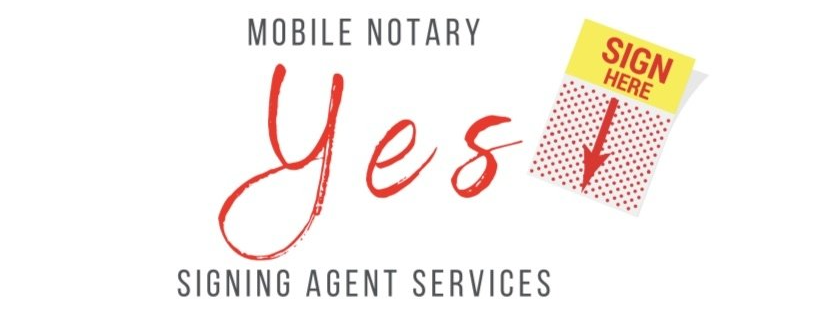
FAQ
-
Why Should I use a notary?
Certain documents require notarizations in an effort to deter fraud, to prove authenticity of the signature and to ensure that the signature was made willingly and not under duress.
An Arizona commissioned Notary needs to take the required steps to authenticate the identity of the signer, the signature and ensure that all notarizations are properly executed according to the laws, rules and regulations for notaries by the State of Arizona.
It is essential that a valid form of identification (as defined in statutes of Arizona law) is presented to the notary at the time of the signing to determine that a signer is who he or she claims to be. For remote notarizations, a third party knowledge based authentication service is used along with credential analysis to ensure the identity of the signer.
-
What is an Arizona Notary public?
In Arizona, a notary public is a public officer commissioned by the Secretary of State to perform notarial acts, as defined in the Arizona Revised Statutes. A notary, in essence, serves as an impartial witness pursuant to A.R.S. 41-328(B).
A notary should take the required steps to authenticate signature and ensure that all notarizations are properly completed and performed.
An Arizona notary may only perform notarizations within the state borders of Arizona. However an Arizona remote notary, if located at the time of the notarization is in the state of Arizona, may notarize documents for a person located anywhere in the world with the proper ID Authentication process.
There are three types of notaries that can be commissioned in Arizona and each one requires a separate commission ID:
Traditional Notary: This type of notary performs all notarial acts on paper. The notary and the signer are both present in the same physical space. The notary might be located at a notary business, at a company or act as a mobile notary going to where the signer is located in Arizona.
Electronic Notary: This type of notary performs all notarial acts on a computer or tablet device. The notary and the signer are both present in the same physical space.
Remote Notary: This type notary performs all notarial acts using communications technology. The notary is physically located in Arizona and the signer can be anywhere in Arizona, the United States or the World.
-
What is satisfactory evidence of ID in AZ?
Compliance: A notary shall identify the signer of a document. This is referred to as satisfactory evidence of identity. (A.R.S. 41-311)
Here are the only acceptable evidence of identification accepted (as of May 2019).
- Personal knowledge of the individual by the notary: A notary can use personal knowledge of the signer if the notary has known the individual for a sufficient length of time and the notary is assured that the signer has the identity claimed. The notary does not need to request other forms of identification from the individual.
- Driver License or Non-operating Identification License: Unexpired and issued by a state or territory of the United States.
- U.S. Passport: Unexpired and issued by the United States Department of State. (Currently US Passports are not accepted for Credential Analysis by third party vendors, but may be used for electronic and mobile notarizations.)
- Armed Forces Identification Card: Unexpired and issued by any branch of the United States Armed Forces.
- Inmate Identification Card or any form of inmate identification: Inmate must be in custody of State Department of Corrections or County Sheriff's Department and issued by the Arizona Department of Corrections or County Sheriff's Department.
- Other Government Issued Identification Cards: unexpired, contains the signer's photograph, signature and physical description including height, weight, eye color and hair color. The card must be issued by the United States government, a state or U.S. territory, or tribal government.
- Credible Person/Credible Witness: If a notary does not know the signer personally and the signer does not have a valid ID, the notary can use a credible person to identify the signer. A credible person must always be someone who knows the signer personally (also referred to as a credible witness [ARS 41-311(11)(A)(vii) and (viii)]) There are two types of credible persons:
a. Someone whom the notary knows and who also knows the signer. Satisfactory evidence of identity of the credible person is personal knowledge. The credible person is placed under oath to swear or affirm that the signer has the identity claimed.
b. Someone whom the notary does not know personally but who personally knows the signer. The credible person must present the notary with an ID card that meets one of the above requirements.
-
What happens before and after the mobile notary arrives?
Before the Notary Arrives:
1. During our initial call, we will need to know:
a. How many documents require notarization?
b. What is your time frame?
c. Have you secured your credible witnesses if required?
d. Do you have the proper ID for the notarization process?
2. To secure and finalize your appointment, you will receive an electronic invoice from us that must be paid in full.
When the Notary Arrives:
1. Provide the notary with the documents to be signed and notarized for review to determine:
a. Is there an adjustment due to the invoice (to be paid prior to the start of the notarization process)?
b. Does the notary need to add any state forms for Jurat, Acknowledgment or Certified Copies?
2. Provide the notary with the proper identification and sign the Notary Log Book.
3. Fill in Signatures and Initials where required on the document, and then the notary will provide the certification and stamp.
We are unable to provide you with legal advice on any legal matter or process.
Our only responsibility is to provide notary services.
-
What Arizona Cities does your mobile notary service?
As a commission notary public in Arizona, we can serve the entire state of Arizona.
Some of the cities we service include: Nogales, Sahuarita, Sierra Vista, Tucson, Oro Valley, Marana.
Our regular service area includes a 25 mile radius, but we will travel further if necessary.
We are a Mobile Notary Business and we charge mileage based on the Arizona Regulated Mileage Fee Schedule at the rate of $0.56/mile. We charge a round trip price. There may be other charges involved as well such as printing, drop off, pick up, etc.
We can service all other cities if we have an available notary to travel.
-
Can I set up a Corporate Account?
We welcome Corporate Accounts. We will set up a corporate account with monthly billing if you are interested in using our mobile notary services on an ongoing basis.
Terms: Payable upon receive of statement on the 5th of the month following the services rendered.
Identification: Government issued picture ID, e.g. Driver’s License, Military ID, or passport. Arizona allows a “credible person” to verify your identity. This is a person who has current ID and who knows you and can confirm your identity.
Witnesses: If the documents require one or more witnesses, they will need to be there at the time of signing and have current ID. Some documents are not valid if the witness is related to the signer or benefits from the document. A friend or neighbor make good witness. I can also arrange witnesses, but they do charge their own fees.
-
What is your state regulated notary fee schedule?
Arizona Roving Notary Fees Schedule
Posted pursuant to R2-12-1102
acknowledgment or jurat $10.00 per notary public signature
copy certification $10.00 per page certified
oath or affirmation $10.00 per notarial act
Attention Customer: Fees charged by an Arizona Notary Public may vary from "no charge" up to $10.
An Arizona NotaryPublic May Charge the Following Fees:
Posted pursuant to A.R.S. § 38-412
acknowledgment or jurat up to $10 per notary public signature
copy certification up to $10 per page certified
oath or affirmation up to $10 per notarial act
-
Can an Arizona notary perform their duties for signers outside the united states?
Short answer: YES
Long Answer: Arizona Senate Bill 1030 effective on April 10, 2020 allows for an Arizona Commissioned Notary to perform notary acts for signers outside the United States with the following conditions:
"Authorizes a Notary who is physically locate din Arizona and authorized to perform remote online notarizations to perform notarial acts by means of communication technology for a remotely located individual in Arizona, outside Arizona but within the United States, and outside the United States." (Summarized from the National Notary Association Website)
"Provides that if a Notary performs a notarial act by means of communication technology for a remotely located individual outside the United States the record must either be filed with or relate to a matter before a court, governmental entity, public official or other entity subject to the jurisdiction of the United States, or involve property that is located in the territorial jurisdiction of the United States or a transaction substantially connected to the United States" (Summarized from the National Notary Association Website)
"Provides that if a Notary performs a notarial act by means of communication technology for a remotely located individual outside the United States the Notary must have no actual knowledge that the act of making the statement or signing the electronic record is prohibited by the foreign state in which the remotely located individual is located."
We Provide all of our clients with Convenience
Confidentiality & Competence.
Regular Business Hours
Mon - Fri - 8:00AM - 5:00PM
Saturday,Sunday - Closed
Premium Business Hours
All other times including all day weekends and federal holidays.
